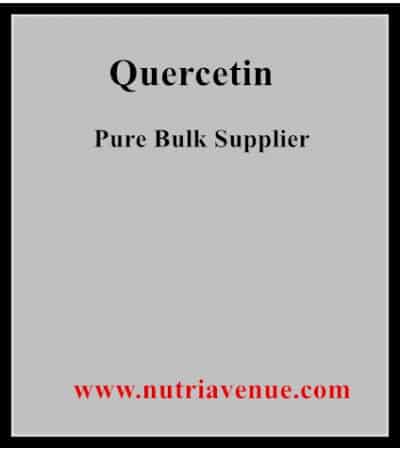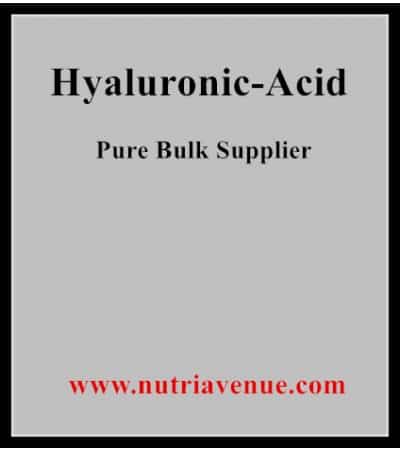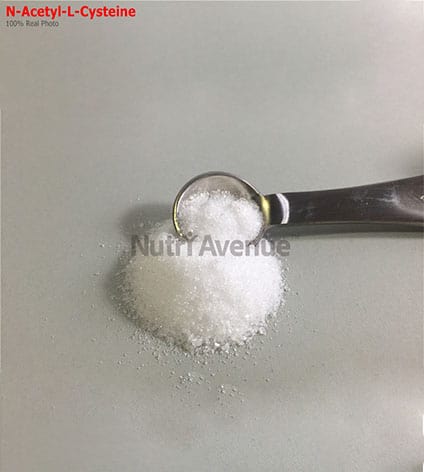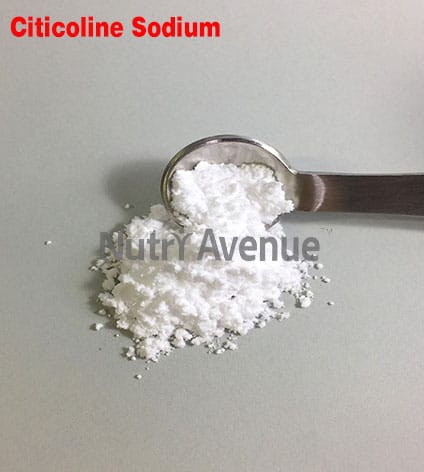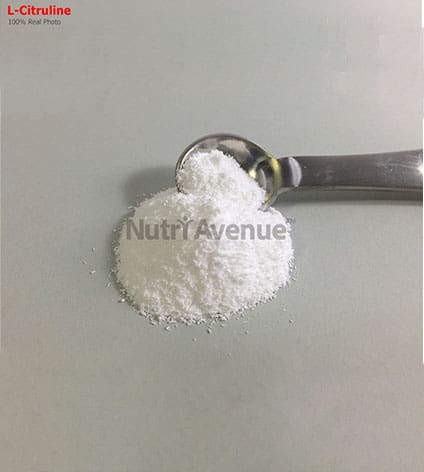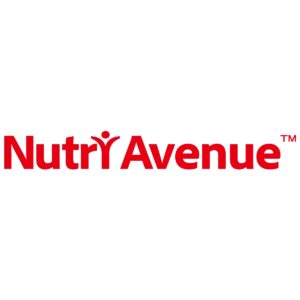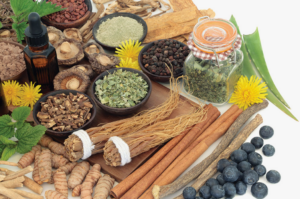What is Quercetin?
The compound quercetin is a polyphenolic flavonoid found in many foods and herbs. It is among the most abundant flavonoids in fruits and vegetables and is classified as a Pentahydroxyflavone having the five hydroxy groups placed at the 3-, 3′-, 4′-, 5-, and 7-positions. The compound is believed to enhance cardiovascular health, reduce inflammation, and support healthy aging. Other names used to refer to the compound include Sophorae Japonica, CAS 6151-25-3,117-39-5, Propolis extract, Quercetin Dihydrate, Quercetin Anhydrous, and Quercetin powder. The compound is identified as having CAS number 117-39-5, the molecular formula of C15H10O7, and a molecular weight of 302.23 g/mol. Quercetin powder has a yellow crystalline appearance and is practically insoluble in water. It is soluble in aqueous alkaline solutions.Common Bulk Quercetin Powder Specifications
Quercetin powder is available in various purities depending on the manufacturing process and intended use. Here are some possible purities of quercetin powder:- Quercetin powder 10%
- Quercetin powder 95%
- Quercetin powder 98%
- Nano quercetin powder
- Quercetin Dihydrate powder
- Quercetin Anhydrous powder
| Type | Flavonoid |
| Appearance | Yellow Powder |
| Content | 95% |
| Purity | ≥98% |
| Particle Size | 80 Mesh |
| Other Ingredient | None |
| Certifications | Kosher, Halal |
| Solvent | Ethanol |
| Water Content | ≤5.0% |
| Test Method | HPLC |
| MOQ (minimum order quantity) | 1kg |
| Sample | Available (10-20g/bag) |
| OEM Service | Available, such as capsules, tablets, pills, etc. |
| ODM Service | Available |
| Private Label | Available |
| Contract Manufacturing | Available |
What Is The Best Source Of Quercetin Powder?
Quercetin is a naturally occurring flavonoid present in diverse plant sources. The optimal quercetin powder source may vary based on personal preferences and the product’s intended application. Familiar sources of quercetin powder include:- Onion skins: Onion skins are a rich source of Quercetin and may be used to extract quercetin powder.
- Apples: Apples contain Quercetin in their skins and can be used to extract quercetin powder.
- Capers: Capers are a rich source of Quercetin and can be used to extract quercetin powder.
- Sophora japonica: Sophora japonica is a tree commonly used in traditional Chinese medicine and a rich source of Quercetin.
- Ginkgo biloba: Ginkgo biloba is a herb commonly used in dietary supplements and a good source of Quercetin.
How Does Quercetin Work?
Quercetin works in the body by regulating certain pathways and improving the function of various organs. As an antioxidant, Quercetin helps reduce oxidative stress in body cells which usually causes cellular degeneration and aging. It also helps cleanse the body of toxins and other unwanted chemicals which are not normally eliminated through normal elimination means of the body. According to studies, Quercetin also helps reduce the production of histamine in some instances, thereby controlling inflammation.More Information
What are Quercetin’s health benefits?
Quercetin is a flavonoid in many fruits, vegetables, and plants. It has been associated with several potential health benefits, including:- Antioxidant properties: Quercetin is an effective antioxidant that can counteract detrimental free radicals within the body and safeguard against oxidative stress.
- Anti-inflammatory effects: Quercetin exhibits anti-inflammatory properties that mitigate inflammation and associated ailments, including arthritis and asthma.
- Immune system support: Quercetin may help to support a healthy immune system by promoting the activity of specific immune cells and reducing inflammation.
- Cardiovascular health: Quercetin has been associated with several cardiovascular health benefits, including reducing blood pressure, improving blood lipid levels, and reducing the risk of heart disease.
- Cancer prevention: Quercetin has been proposed to possess anticancer properties and the potential to inhibit the proliferation of specific cancer cells.
- Allergy relief: Quercetin has been shown to have antihistamine properties and may help to reduce allergy symptoms, such as sneezing, runny nose, and itchy eyes.
Are There Any Side Effects Of Quercetin Powder?
Taking Quercetin is not necessarily associated with side effects. However, some users may experience mild gastrointestinal symptoms and headaches. These are expected to disappear after the first few doses.Quercetin Dosage
Typically, the recommended doses for Quercetin range from 500 to 1000 mg per day. This may vary upon a physician’s prescription based on the individual user’s weight, age, and overall physical condition.Where can you buy high-quality Quercetin powder in bulk?
Are you seeking a dependable supplier for bulk purchases of Quercetin powder of superior quality? Nutri Avenue is a recommended location. The Quercetin powder is derived from a high-quality plant source called Sophora japonica to guarantee optimal purity and potency. Given our dedication to excellence and meeting customer expectations, Nutri Avenue is the ideal option for your Quercetin powder requirements.What Is Quercetin Powder Manufacturing Process?
Here is a general overview of the manufacturing process for quercetin powder: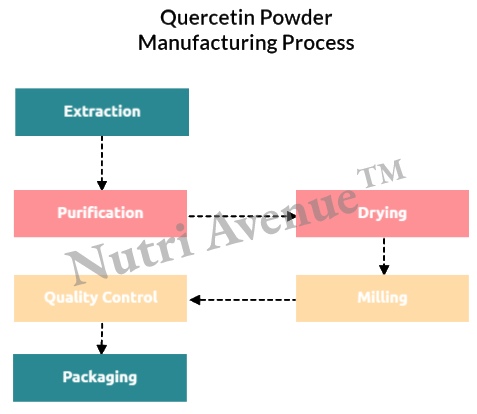
FAQs
Quercetin Phytosome is a modified form of Quercetin that is shown to enhance the nutraceutical and nutrient delivery of plain Quercetin. The term “Phytosome” is a bioavailability technology that helps introduce Quercetin into the cells more effectively.
While Quercetin Phytosome and Quercetin both provide similar health benefits, the former is shown to be more efficient as it provides superior absorption and utilization in the human body.
Hence, Quercetin Phytosome is a better form of Quercetin.
Quercetin Dihydrate is a form of quercetin that is used in the formulation of various nutraceutical products. It is described as having CAS number 6151-25-3, molecular formula of C15H14O9, and a molecular weight of 338.27 g/mol. Quercetin Anhydrous is also a quercetin compound that provides similar health benefits as that of quercetin.
The main difference between Quercetin Dihydrate and Quercetin Anhydrous is that the former offers higher aqueous solubility in temperatures above or equal to 100 °C. However, the compounds have similar aqueous solubility in temperatures less than 80 °C.
Also, Quercetin Dihydrate is believed to have the highest bioavailability among all quercetin forms. Hence, it is better than Quercetin Anhydrous.
The best form of Quercetin may depend on individual preferences and intended use, but Quercetin dihydrate is a commonly used form.
No. Ivermectin is an anti-parasitic agent while Quercetin is an antioxidant flavonoid.
No, CoQ10 is not the same as Quercetin.
Quercetin has been shown to have immune-boosting effects in some studies.
Quercetin is not currently FDA-approved for any specific medical condition or use, but it is generally recognized as safe (GRAS) for use in foods and supplements.

